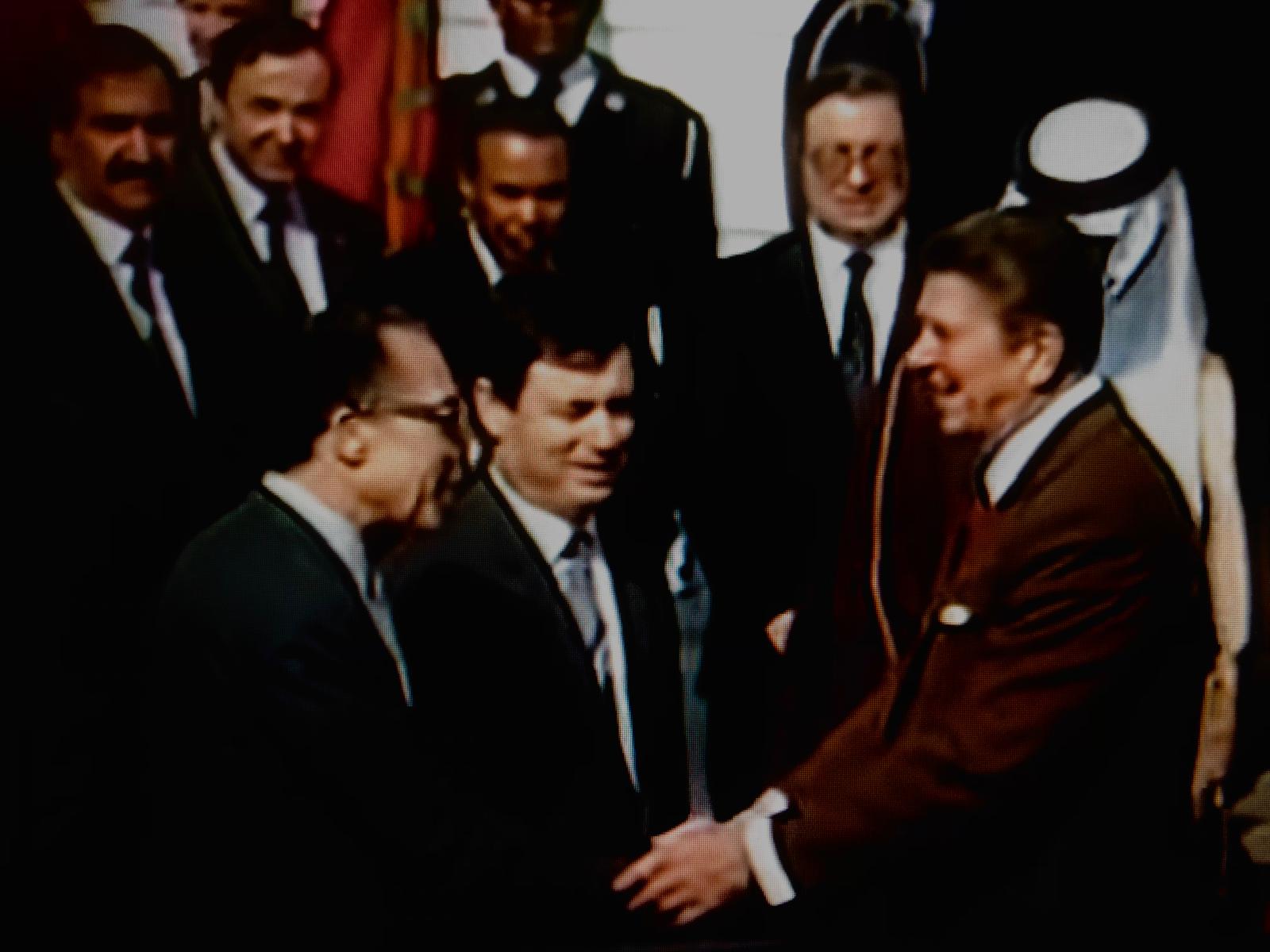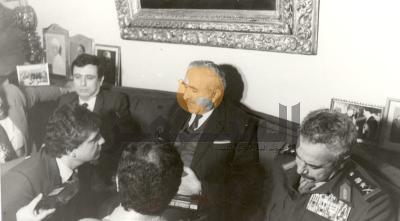President Reagan tried to restore momentum to the stalled Middle East peace talks by meeting with a delegation of key Arab leaders who pledged to join him in pursuing stability for the region.
‘Peace in the Middle East means achieving security for all the states in the troubled region — security for the Arab states, security for Israel and a sense of identity for the Palestinian people,’ Reagan said, calling his talks with the Arab League an ‘important milestone.’
Hassan said the preliminary talks ‘will save us a lot of time in order to achieve our noble aim and objective, which is peace and co-existence and construction for the welfare of the region and all mankind.’
The president noted the situation was urgent, time was passing and it was important therefore to move to the negotiating table and start the negotiations and that we believe this should be done through Arab support for (Jordanian) King Hussein,’ the U.S. official said.
Hassan said such support could come only through an agreement between the Jordanians and the PLO, which the Arab League has designated as the sole legitimate representative of the Palestinians.
Joining Hassan and his foreign minister, M’hamed Boucetta, and Saud, were Foreign Ministers Abdul Halim Khaddam of Syria, Beji Caid Essebsi of Tunisia, Marwan Kasim of Jordan and Ahmed Taleb el Ibrahimi of Algeria.
The Arab plan urges a separate Palestinian state, while Reagan would like to see Palestinian autonomy in association with Jordan in the Israeli-occupied West Bank and Gaza.
The league wants Israel to withdraw from all occupied territory while the United States pledges to guarantee Israel’s security.


